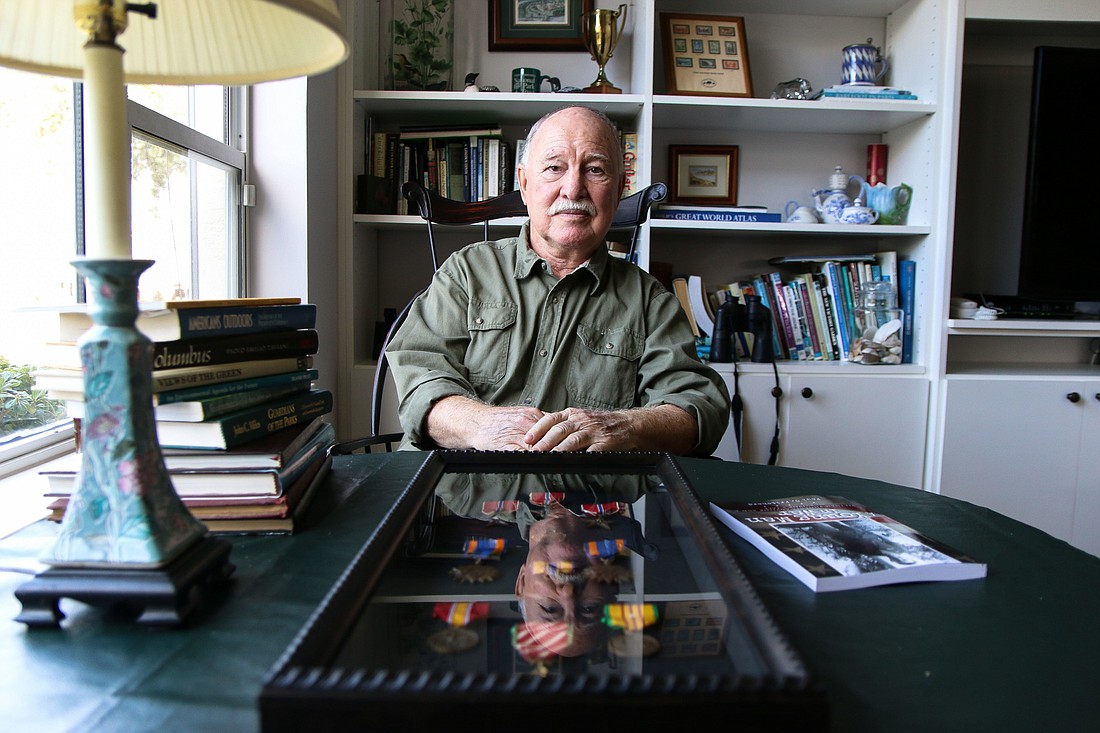- January 23, 2025
-
-
Loading

Loading

As U.S. Army Lt. Paul Pritchard was stationed at a hospital in South Vietnam, a nurse handed him a baby that had been shot in the stomach by the Viet Cong for having an American father and Vietnamese mother.
“I think that was the point in which I became much more hardened to war,” Pritchard said. “I think you become numb, and you become focused on survival. Something triggers that, and that was my trigger.”
It was 1968, shortly after North Vietnam had launched the Tet Offensive. Pritchard was six months into his 18-month service as a phoenix advisor in the Vietnam War.
When Pritchard wrote home to his mother and father, he didn’t mention moments like that. He talked about the scenic nature and his experiences working with the South Vietnamese as an advisor, which entails aiding a nation with its military training and organization against a common enemy.
“My mother handed me all my letters when I got back — she saved them all — and I suddenly saw the pile of letters, and I realized that was only was part of what happened, at most,” he said. “It was only the good part.”
Burying the haunting memories, Pritchard returned to the states on a mission to make the world a better place.
He became the president of the National Park Trust, followed by the president and publisher of National Parks and Conservation Association and then the deputy director of the Heritage Conservation and Recreation Service within the National Parks Service.
When Pritchard visited England for a conference in 1987, he felt the urge to write out what he didn’t include in his letters home — the whole truth. He asked the front desk at the little inn he was staying at for a typewriter to use, and he went to work.
“I took it up back to my room, and I just started writing,” Pritchard said. “I think that first time I wrote for like 15 to 20 hours straight.”
Over the next three decades, he penned “A Young Man In War: Vietnam Phoenix Advisor and A Survivor’s Tale,” which was published in December 2017. The writing process spanned three marriages and four kids, as his first two wives died of cancer and a stroke, respectively. He said his family was there for him through the book-writing process, offering encouragement and a push to get it published.
A stack of books Pritchard has written, edited or been featured in sits near binoculars, a world atlas and military honors in his Palm Coast home. His new book, which is his only one about war, will be available to check out at the Flagler County Public Library, 2500 Palm Coast Parkway N.W., starting Jan. 24. There, Pritchard will speak at noon at the Sons of the American Revolution meeting, which is open to the public.
Pritchard said writing the book served as a cleanse to remove the horrible things he saw during war from his core memory.
“The most important thing about the book was the realization that when I saw terrible things, I didn’t become terrible in my own mind — that, for some reason, I had enough moral and ethical fiber, and I think that’s very important,” he said. “I credit my parents for that.”